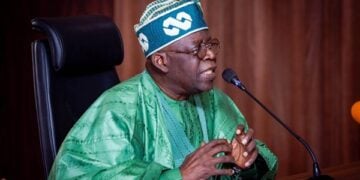United Nations Children’s Fund (UNICEF) has expressed concern that Nigeria has the largest number of out-of-school children globally, with only 63 percent of primary school children regularly attending school.
The UN agency also lamented that a staggering 10.2 million primary school-age children and an additional 8.1 million at the Junior Secondary Level are out of school in Nigeria.
This was stated by the chief of field office, Bauchi UNICEF Field Office, Dr Tushar Rane, in a goodwill message during a two-day regional stakeholders’ meeting on the “Out-of-School Children and the Retention, Transition and Completion Models in Bauchi, Gombe and Adamawa States” held at Emerald Hotel Hall, Gombe yesterday.
UNICEF further expressed deep concern with the rate of out-of-school children, and low learning achievement in the country, especially in the North-East and North-West zones.
Rane said, according to the Multiple Indicator Cluster Survey 2021, only 84 percent of children effectively transition to Junior Secondary Education after Primary School completion.
He added that, “Less than 50 percent – about 2.4 million – of the 5.9 million children who commence Primary Grade 1 annually in Nigeria persist to the conclusion of Junior Secondary Grade 3.”
The UNICEF CFO further said that, “An analysis of the MICS reports between 2011 and 2021 shows an increase in dropout rates across all genders at the primary level especially in the northern part of the country. Specifically, the primary-level dropout rate rose from 1% in 2011 to 5% in 2021.”
“A similar upward trend is noticeable when considering wealth quintiles. For students belonging to the poorest wealth quintile, the primary-level dropout rate increased from 2% in 2011 to 6% in 2021. Among students in the richest wealth quintile, the dropout rate also showed an increase, rising from 1% in 2011 to 4% in 2021,” he added.
He added that, “This consistent pattern suggests that, compared to a decade ago, the education system in Nigeria faces challenges in retaining students and ensuring their continued education across all the regions and the problem persists in the North-East and North-West.”
According to him, “Numerous obstacles prevent consistent school attendance, timely enrolment, and completion of education for all Nigerian children. Some of these obstacles include inadequate evidence-based policy and planning, limited budget allocation, significant shortages of qualified teachers and classrooms, poor infrastructure, cultural norms, health and safety worries, and dependence on children for income and household tasks.”
In her remarks, Gombe State commissioner for education, Prof Aishatu Maigari, said, “It is going to be very educative, very incisive and it is going to be a robust programme and policy that will be used to mop up the out-of-school children, to make sure they returned to school, to ensure that they stay in school.”










